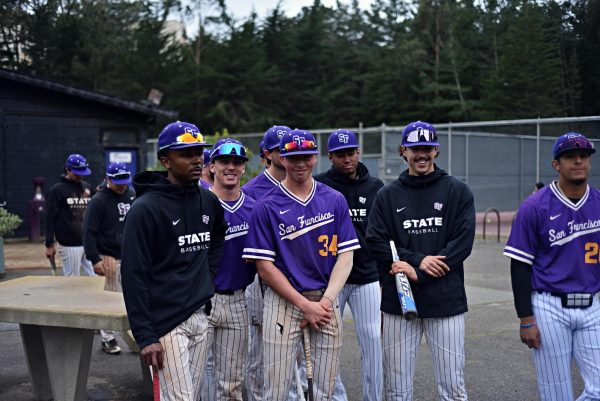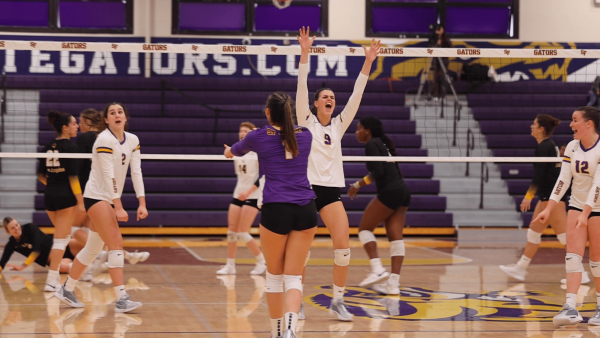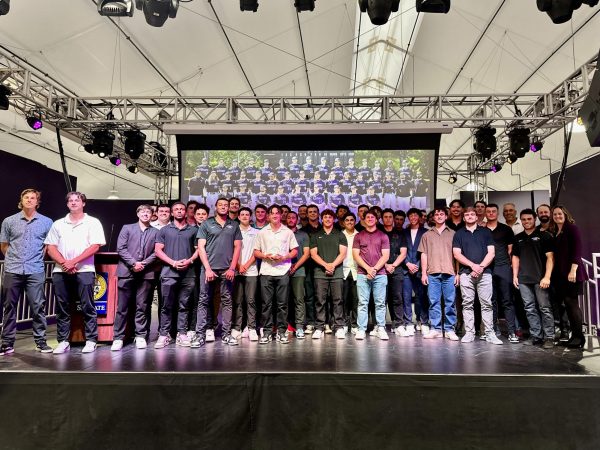Q&A: Les Wong on being ‘catalyst for a new vision’ at SF State
There was quite a bit of criticism of the CSU trustees when they approved a 10 percent raise that you got over President Corrigan. I’m wondering what your response is to that criticism?
Ellen Griffin: Can I just correct that? It was actually 9 percent.
LW: San Francisco State is one of the most prestigious campuses in the country. I have no doubt that it is one of the most prestigious campuses in the Pacific Rim, and when they asked if I would consider applying, I did. I interviewed. They offered me the job and I took it. I don’t do things for money and I just said,”Be fair.” In today’s world executive salaries are competitive. So I’ll just leave it at that. I understand the controversy because students are paying more, my commitment is that we’re going to work really hard to raise money for students. We’re going to make sure that access and affordability remain at the forefront of every decision we make. Whether it’s parking, whether it’s book costs, whether it’s the price of paper — if we’re not sensitive to that, then we’ve missed the boat. So I can understand the controversy, but for me, there is family. There are a lot of different things that represent whether the compensation for a president meets the expectations.
That leads well into my next question: What is your stance on the tax initiatives that will be coming up in November, specifically Proposition 30?
LW: Well, I have to tell you, it’s a pretty complex issue. By way of context, California is going through a budget reduction in two years that, in Michigan, took nearly nine. So the intensity of trying to make that adjustment and correction in such a short amount of time is its own problem. It interferes with how we plan, how we make decisions about the size of the freshman class. There are just so many different things to throw into the bucket. It’s like turning to a student and saying “You know, in the next two weeks we want you to find a spouse, get married, buy a house, find a job, blah, blah, blah.” The intensity is difficult. I think Prop. 30, I hope people are informed about it, I hope students get informed about it. It has a lot of ripples in terms of course availability. It has a lot of ripples about access. I’m going to be really straightforward with you, I don’t tell students what they should or shouldn’t do because one of my tenets is that students ought to own their own mind. You’ll hear this in my first convocation, well it’s not a convocation, but the first faculty meeting next Friday (Sept. 7), that’s one of my premises. I feel very good about what we did in Michigan to make sure that every legislative battle that we supported or not, or every issue that came up in the legislature, in some way enhances the student experience. Sometimes that required students to get out and vote as well. If there is anything, I hope students get informed and I hope they vote. The chips will fall where they ought. It’s one of those things where Prop. 30 needs to be well understood.
So if Prop. 30 doesn’t pass and the trigger cuts go into effect, what is your contingency plan to deal with a further reduction in state funds?
LW: Well, you know, again to be resonant with my value system, I’ve already asked the vice presidents, in that event let’s think through “What do we do if it doesn’t pass?” We protect the curriculum to the best we can. That’s why you all are here. Let’s try to contain costs the best we can. This will sound odd, but how entrepreneurial can we be? To create and support revenue streams that will help us with the first two items, to help students and to keep our costs down. You don’t often hear that from college presidents, but I think the new economy is asking us to be entrepreneurial and to ask our students to be that way as well.
In that same vein, what role do you see private donations playing at SF State as we receive less state funds, and will you be actively seeking out private donations?
LW: Absolutely. I consider that in a world where I’m committed to access and affordability, I think that is going to be a big chunk of my time. That’s one reason that I wanted to make sure that I’m connected to our alums, to our donor base, to you all as students. I’ve told the alumni office, in many ways, we ought to be talking to freshmen as part of our fundraising piece much like the private schools do. I don’t know this for a fact, but I’m assuming that if you went to Notre Dame or Duke, that they are probably connecting to students when they are in their first year and perhaps we need to be doing that as well.
EG: I’m going to interject here, he’s being very modest. I’m trying to get him to let me release that him and Mrs. Wong have already set up a scholarship and have donated personally. That’s a scoop you can have. I don’t have a release on that yet, but I believe that it is a five-year pledge.
LW: Phyllis and I have committed a $35,000 pledge to start with. That is something that we did throughout our years in Michigan as well.
That’s great. I’m sure the recipients will thank you. My next question is: Do you see private money funding public education as a good thing, it seems pretty obvious that you do, but I wonder if you think it can have any drawbacks?
LW: You know, there really are some examples that will lead us to think carefully. We’re not going to go out and accept any and every gift that comes to us. We’re not like the super PACs of the world. There are some people who I’ve had to think twice about accepting money from. Firstly, we want donors to understand the mission and vision of San Francisco State. We want them to understand the kind of students and the student environment that we have here. I kind of like the rebellious, outspoken stereotype that I’ve been told characterizes our students. I think that’s the mark of a great university, i.e Berkeley, Duke, NYU. I mean the great schools have student bodies that are willing to be creative and outspoken. So I think donors need to be supportive of that mantra in our mission. And I’ve turned down money in my prior institution where I’ve said “We can’t produce what you want us to do with your donation.”
What is your take on the role of UCorp and the SF State Foundation, in terms of fundraising?
LW: Well it’s a little bit of a different organization than I’m used to, but its very common to have an auxiliary sort of setup like UCorp. Here it is structured differently, but we had a similar thing in Michigan, and so its a way in which the University can in fact be entrepreneurial. General fund dollars are about 23 or 24 percent?
EG: General fund is approximately about 50 percent of our budget, maybe a little less. It looks like (the total budget is) about $307 million, and general funds are between $150 and $160 (million.)
LW: And declining. The point I was getting at is that UCorp is a way to cover all of those additional costs and projects, etc., that the general fund just isn’t there to do. Unfortunately, and fortunately, sometime it means being like a business, it means being entrepreneurial. But it does help us cover those areas where the general fund just doesn’t.








